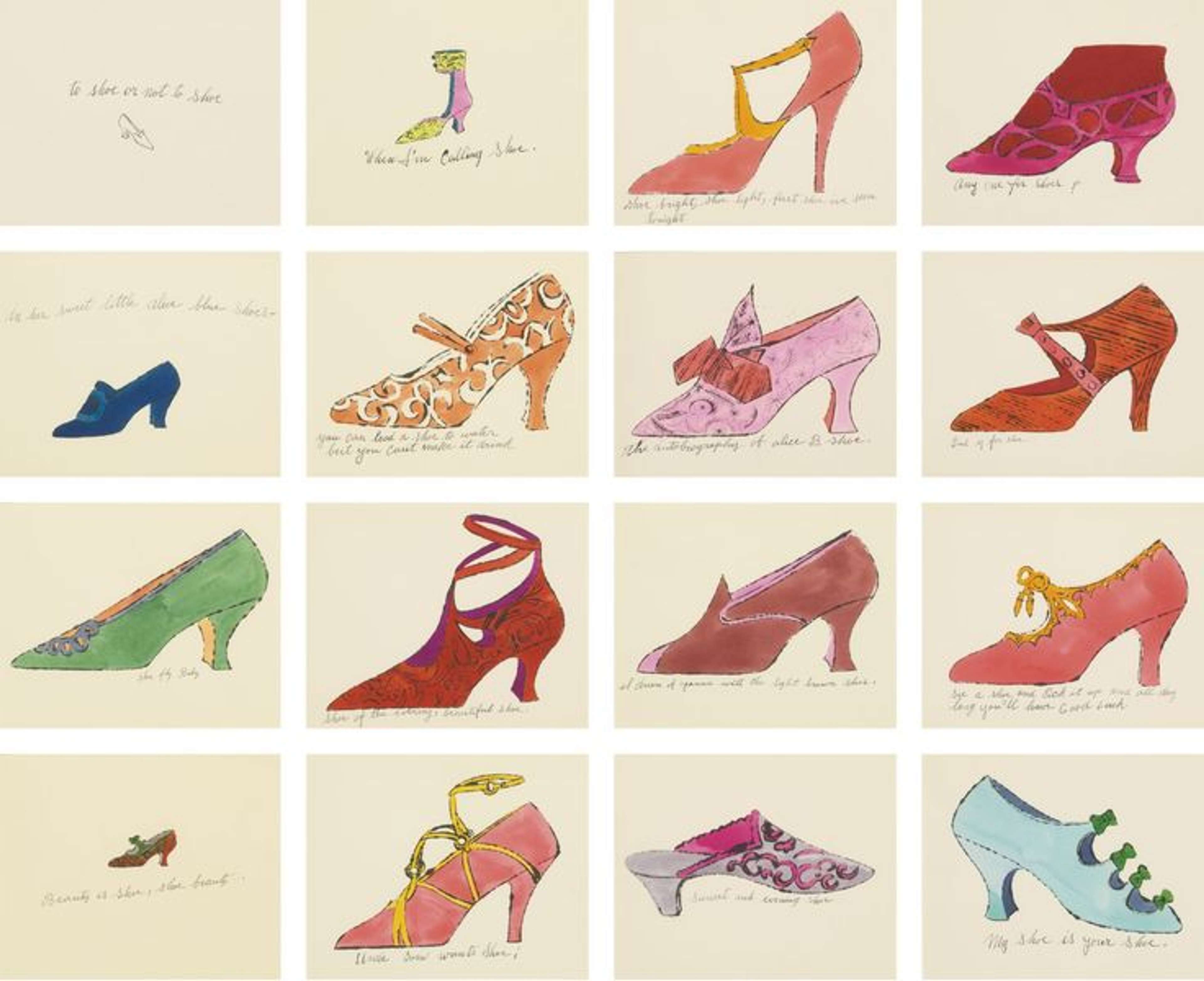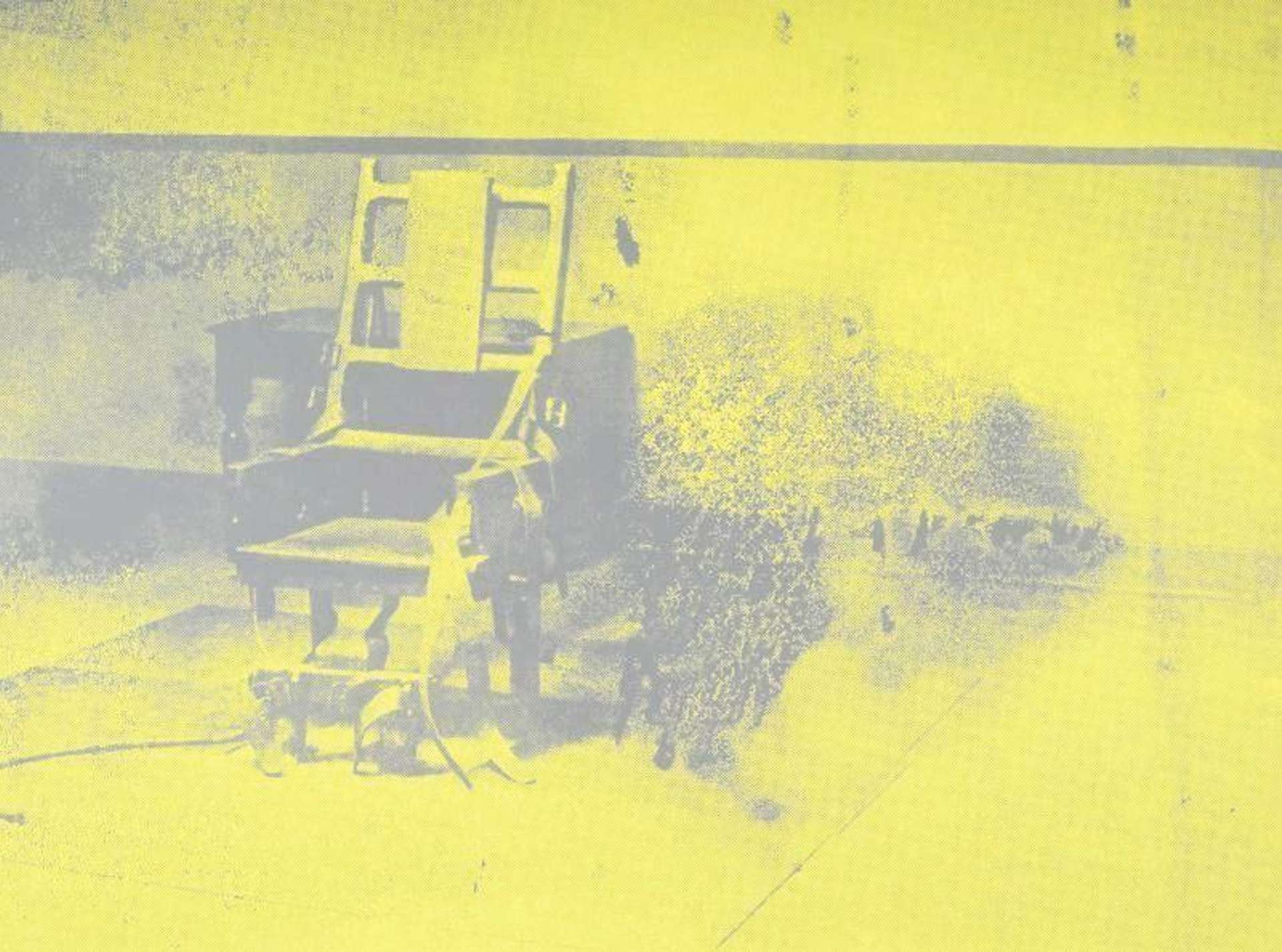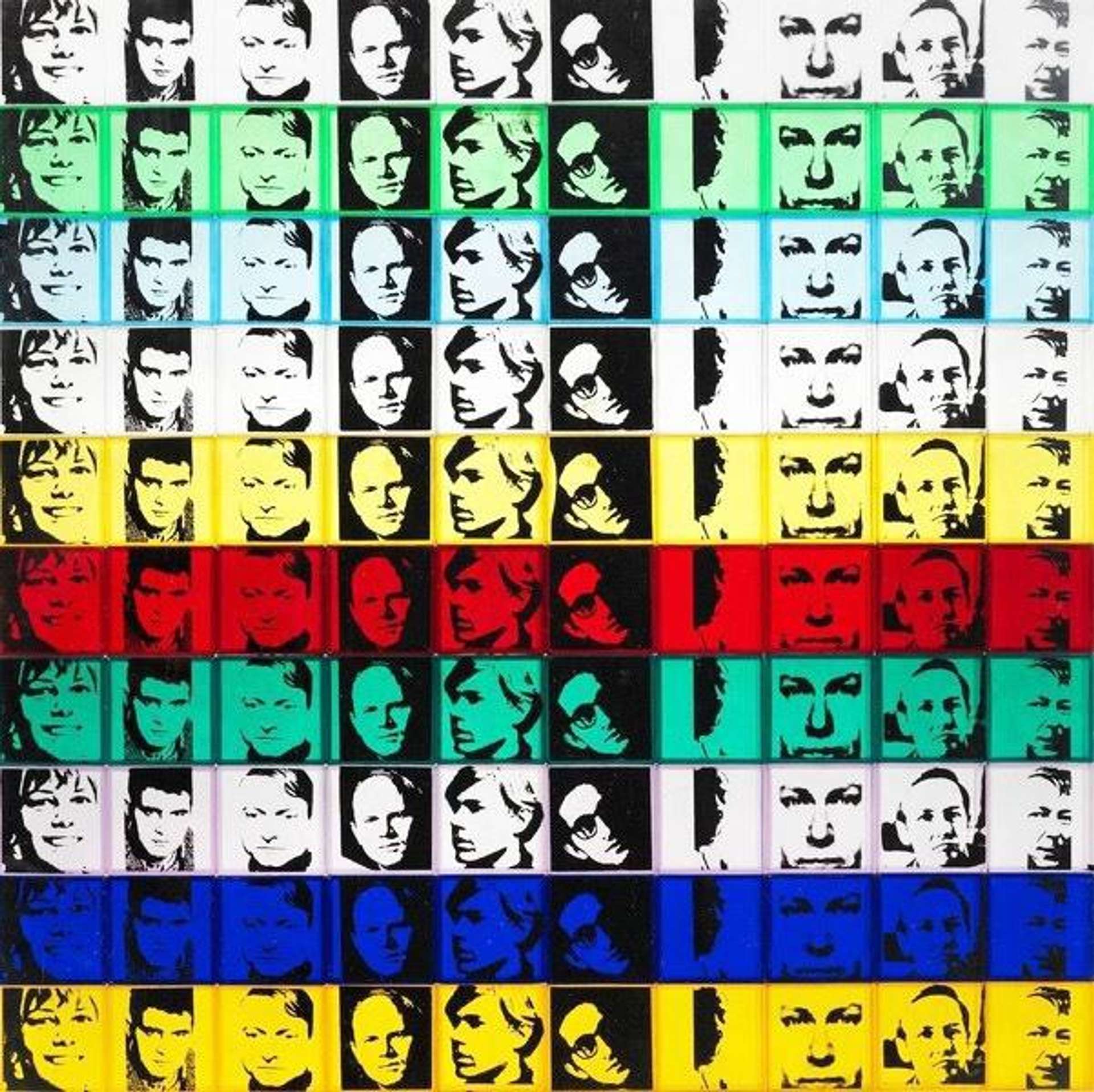Where To See Andy Warhol’s Most Famous Works
 Marilyn (F & S II. 31) © Andy Warhol 1967
Marilyn (F & S II. 31) © Andy Warhol 1967
Interested in buying or selling
Andy Warhol?

Andy Warhol
487 works
What museums have artworks by Andy Warhol?
Given that artworks by Andy Warhol are among the record-holders of the commercial art world—selling for $195 million, for example, and being crowned the most expensive auction sale of any 20th Century work—it is no mystery that some of the most prominent and respected museum collections across the globe are home to Warhol's work.
In this article, we will review which museum collections and private galleries hold works by Andy Warhol, and where to find them.
Where can I see Andy Warhol's art in the UK?
Tate – London, Liverpool and St. Ives
The Tate galleries have the largest collection of Andy Warhol works in the UK. It holds several of Warhol’s well-known pieces, such as the Marilyn Diptych from 1962, his Self-Portrait from 1968 and Skulls from 1976.
The galleries have also acquired some lesser known but all the more fascinating artworks, such as Birmingham Race Riot from 1963, which provides insight into Warhol’s engagement with the subject of political activism.
Andy Warhol’s works have been part of Tate’s Artist Rooms programme, which curates room displays for individual contemporary artists. This impressive collection contains over 1600 artworks and has been hosted by various institutions in the UK, including the National Galleries of Scotland.
Where can I see Andy Warhol artworks in the US?
Museum of Modern Art, NYC
The Museum of Modern Art possesses an incredible Warhol collection alongside many other greats of the Post-War American Era. You could find popular works like Double Elvis (1963) or Campbell’s Soup Cans (1962). On the other hand, if you’d rather familiarise yourself with the works around those most famous pieces, you can also see his early sketches of shoes for various magazines including La Recherche du Shoe Perdu, or the beautiful short film Sleep (1963) capturing Warhol’s sleeping lover, then the MOMA has it all.
 Warhol's early sketches of shoes for various magazines can be found at NYC's MoMA. (La Recherche Du Shoe Perdu Series © Andy Warhol 1955)
Warhol's early sketches of shoes for various magazines can be found at NYC's MoMA. (La Recherche Du Shoe Perdu Series © Andy Warhol 1955)Whitney Museum of American Art, NYC
The Whitney Museum’s Warhol acquisitions contain some rare gems. For example, they possess his bold portfolio of coloured screen prints entitled Ten Portraits of Jews of the Twentieth Century from the early 1980s, as well as an extensive selection of Warhol’s drawings of flowers and his intimate polaroids or friends and acquaintances from the ’70s.
Andy Warhol Museum, Pittsburgh
The largest collection in the world today is held at The Andy Warhol Museum in Pittsburgh. This museum is the ultimate global archive for anything related to Warhol’s life and practice with a constantly changing program for visitors.
Almost every notable example of Andy Warhol’s work can be found in its various forms here – including drawings by the artist’s mother, Julia Warhola are included in this vast collection of over 12,000 artworks of all media.
The Metropolitan Museum of Art, NYC
The Metropolitan Museum of Art in New York has acquired several iconic works by Warhol, such as versions of Warhol’s vibrant Flowers series (1967-68) and one of his Mao (1972) silkscreen canvases.
The Broad, LA
Just next door to the Museum of Contemporary Art in Los Angeles, The Broad is home to an impressive collection of post-war and contemporary American art, including Andy Warhol. Particular highlights are some of his earliest humorous cartoons and sketches from the 1950s featured in the collection, such as Folding Screen (Piglet).
Where can I see Andy Warhol art in Europe?
Museum für Moderne Kunst, Frankfurt
The MMK in Frankfurt is rather under appreciated but holds one of the greatest Warhol collections, the German institution hosts over 65 works of Pop Art including seminal pieces by Warhol and his contemporary, Roy Lichtenstein.
The impressive collection was originally acquired in the 1950s and ’60s by Karl Ströher, whose heirs donated it to MMK.
The museum owns several of Warhol sketches of male models from the early years, as well as some of his conceptual sculptural works from the Brillo Soap Pads Box series in the 1960s.
Where can I see Andy Warhol art in Asia?
Leeum Samsung Museum of Art, Seoul
Perhaps one of the most prised possessions of the Leeum Samsung Museum’s collection is Forty-Five Gold Marilyns (1979). The mesmerising, monumental work on canvas merges two of Warhol’s central artistic themes: the cult of celebrity and death.
Warhol made several versions of artworks inspired by Marilyn after her tragic death, but this large-scale edition in gold silkscreen print against an eerie black canvas is one of his most captivating.
Tehran Museum of Contemporary Art, Iran
In 2024, the Tehran Museum of Contemporary Art launched Eye to Eye, an exhibition showcasing over 120 Western and Iranian artworks, including Warhol’s Jacqueline Kennedy II and a portrait of Mick Jagger. These pieces, hidden for decades after the 1979 revolution, have drawn large crowds as the show signals a rare cultural opening in the country. The exhibit highlights Iran’s vast, rarely seen collection of 20th-century Western art.
 Forty-Five Gold Marilyns is held at the Leeum Samsung Museum of Art in Seoul. (Image © Phillips / Forty-Five Gold Marilyns © Andy Warhol 1980)
Forty-Five Gold Marilyns is held at the Leeum Samsung Museum of Art in Seoul. (Image © Phillips / Forty-Five Gold Marilyns © Andy Warhol 1980)Private galleries featuring Andy Warhol
Gagosian, NYC, London
As the largest international gallery franchise, it perhaps comes as no surprise that Gagosian has acquired an impressive and varied collection of artworks by Andy Warhol.
Alongside private collections and the Warhol Museum and Foundation, Gagosian has probably leant the most pieces of Warhol’s to institutional exhibitions, including his retrospective at Tate Modern in 2020.
The gallery is in lucky possession of a few incredibly unique and striking Warhols, such as his Piss Painting from 1978 and his playful installation Silver Clouds (1966). The exhibitions at Gagosian often match the scale and curatorial detail of a museum show, and their displays dedicated to Warhol haven’t been an exception.
An example is Liz, an exhibition at the West 21st Street gallery in New York in 2011 focusing on Andy Warhol’s works about Elizabeth Taylor.
Skarstedt, NYC, London
One of the bigger international galleries, Skarstedt has an impressive collection of Post-War and Contemporary Art, including works by Christopher Wool, Franz West, Keith Haring and of course, Warhol.
In addition to seminal works such as Self-Portrait (Fright Wig) from 1986 and Mao (1973), Skarstedt also has a canvas from Warhol’s Ladies and Gentlemen (1975) series portraying the drag queen royalty of the era.
Alexis Lartigue Fine Art, Paris
Alexis Lartigue gallery in Paris possesses a limited but neat selection of works of 20th century of American Art, including Yves Klein, Fernand Leger and Warhol. The gallery has a charming collection of Warhol’s canvases from the 1980s rendered in negative and positive.
Galerie Bruno Bischofberger, Zurich
Bruno Bischofberger in Zürich holds the gorgeous, large-scale canvas Big Retrospective Painting, 1979 by Warhol, which is one of his acrylic and silkscreen pieces on canvas. The gallerist wrote an entertaining essay about the acquisition of the work and his meeting and lasting work relationship with Warhol himself at his Factory in New York in the ’70s. In one of the last paragraphs he writes:
“Big Retrospective Painting also shows Warhol getting «carried away». The painting has always reminded me of Picasso’s monumental painting Guernica, a work that is, for me the most important one in the second half of the artist’s life. And, in the same way that Picasso was the most important artist and influence on the art of his time during the first part of the twentieth century, Warhol was, in my and most people’s opinion, the most important and influential artist of the second part of the century.” (read full essay here)







